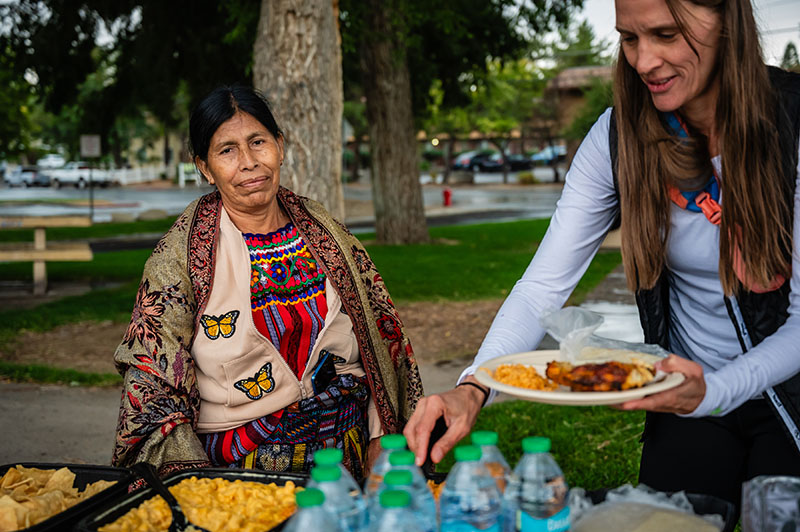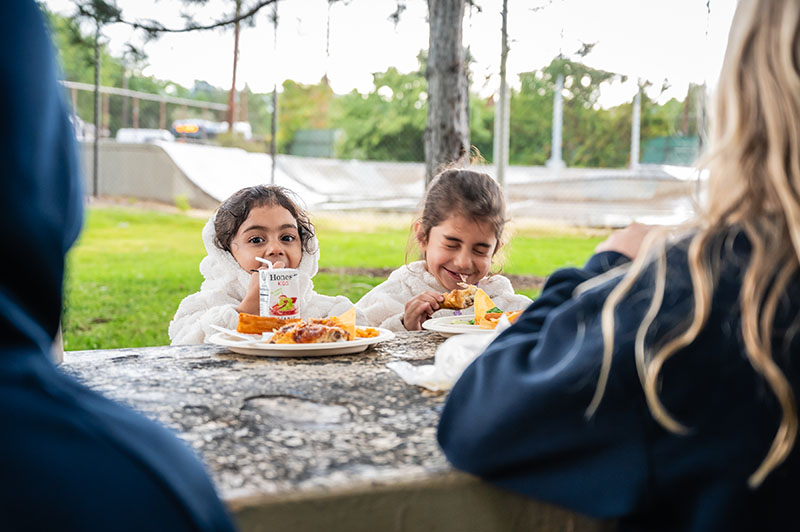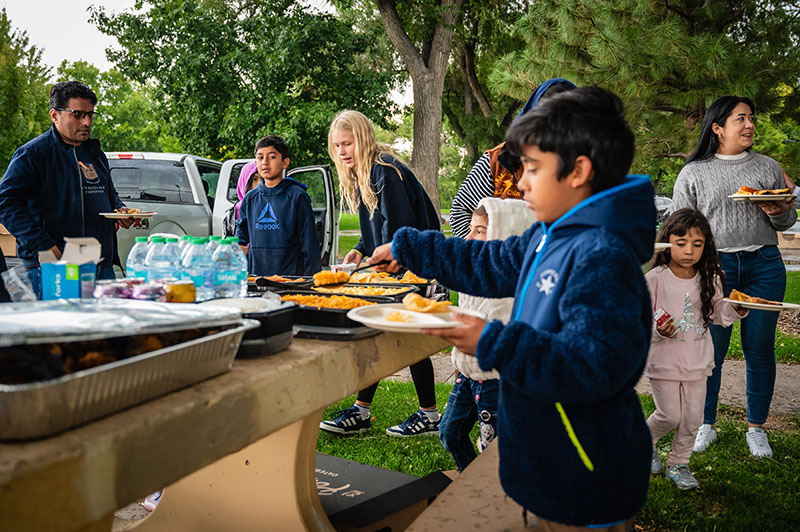Peace Feasts help refugees feel like part of the community.
Reno is not widely known by its residents as a resettlement community for refugees, but with the help of the Northern Nevada International Center, The Biggest Little City now is home to about 100 families who have relocated here from their homelands around the globe, due to circumstances largely out of their control.
In 2022, Jay Stearley — a volunteer for the NNIC — recognized these families’ need for connection and started Peace Feasts, a series of monthly meals that connect refugees with each other and their American neighbors in a friendly, fun environment.
“We wanted to honor, value, and welcome people into our community,” Stearley says. “We’re hoping that through these dinners, they’ll just take a deep breath and say, ‘I can live here.’ It’s beautiful when they meet some of their fellow countrymen … They meet people who have come before them or also arrived recently. It’s networking.”
He approached the NNIC with his intent to create Peace Feasts as another way to support relocated international families. He simply needed the organization to help get the word out.

Creating Community
The feasts foster camaraderie among families, both new to Reno and with longstanding roots. Connections made at these gatherings provide a web of support that offers resettled families help with locating needed resources, such as rides to the doctor or grocery store, English lessons, plus assistance understanding American customs and practices.
Stearley sees the feasts as another boon to the NNIC’s resettlement work. Amid the upheaval of the relocated families’ lives, Stearley — whose own family is actively involved in the events — and his Peace Feast team’s motives are pure: They simply want to help.
“Refugees are typically the victims of evil, and they’ve been subjected to so many factors and used; sometimes they’re victims of human trafficking … We just wanted to have a pure expression of humanity,” Stearley explains. “There’s no ask, no demand, no expectations. It’s nothing but open arms and an amazing meal.”
Locations for the feasts vary based on capacity, availability, weather, and available space for children to freely frolic together. Stearley and his team of “peacemakers,” as he calls Peace Feast volunteers, have hosted about 10 meals in various locations, including community centers and parks. Volunteers are divided into crews for setting up, cooking, and serving, with others helping transport guests to the events.
Dinners can accommodate up to 60 people, but they’re not fancy, Stearley explains. Meals are made by him or his team. Peace Feasts are about lavishing guests with hospitality, not gourmet entrées.
The Language of Food
At the feasts, communication transcends language. Translation apps are used to converse, children play together, and smiles speak volumes.

“There’s this huge language barrier, but what happens is that kids will be kids and figure out how to play together … that you can pull up Google Translate and end up having authentic, meaningful conversations about life, about family, about where these refugee families have traversed to get to Reno, Nevada, to be sitting inside, sharing this meal together,” says volunteer Katie Anderson. “You end up really just getting a taste for how complicated, dynamic, and also just how big and small the world is in one moment in time, in one three-hour meal.”
Amanda Mundt coordinates the volunteers and English-as-a-second-language programs for the NNIC and assists Stearley with getting the word out to the resettled families with whom the nonprofit regularly works. She begins by inviting the newest families to the area but says all are welcome until capacity is met.
“It lights up my heart to see everyone smiling and interacting, and the kids playing together,” Mundt says. “They’re really excited to be in a safe space because life here can be difficult.”
To get involved with Peace Feasts, or for details, visit Peacefeasts.com.


